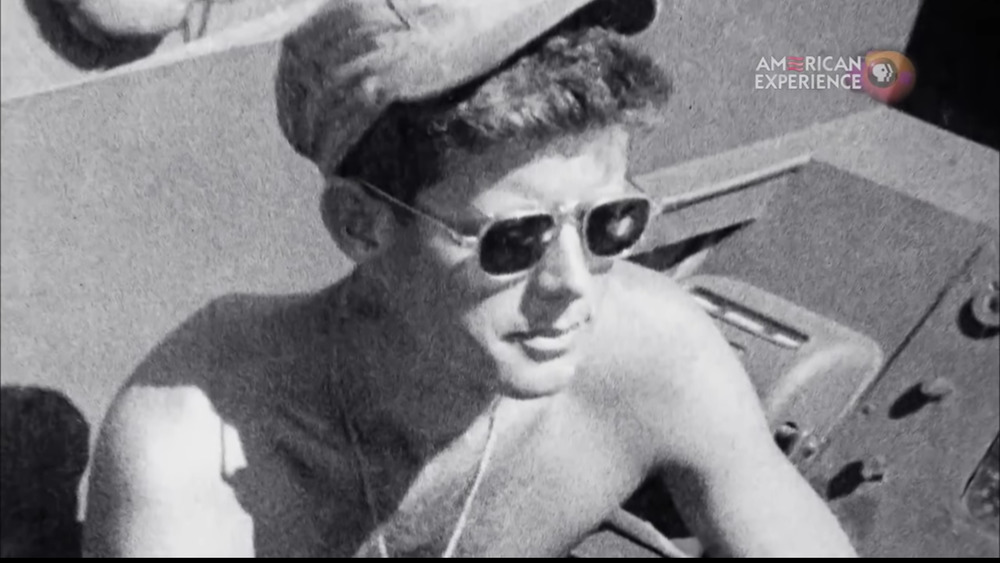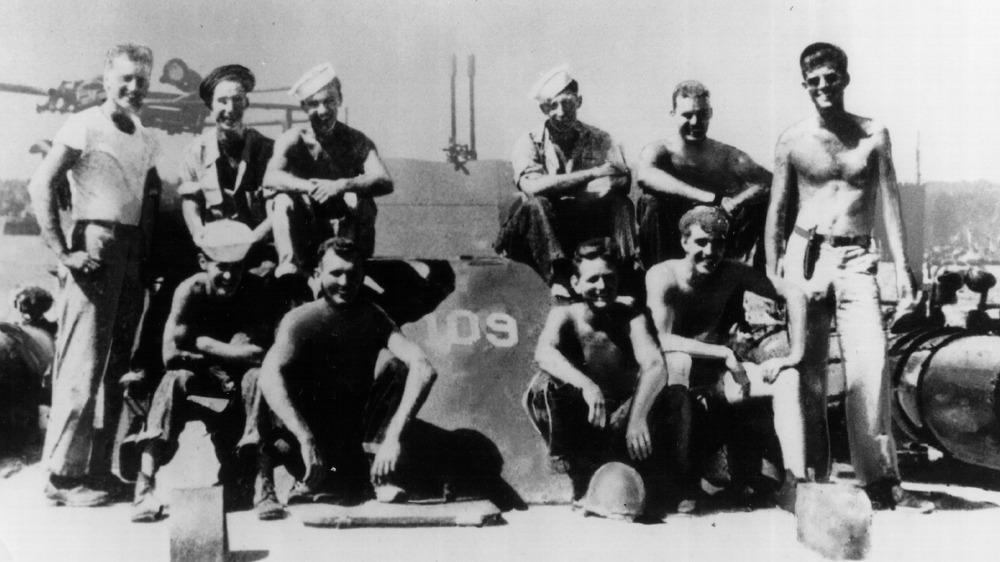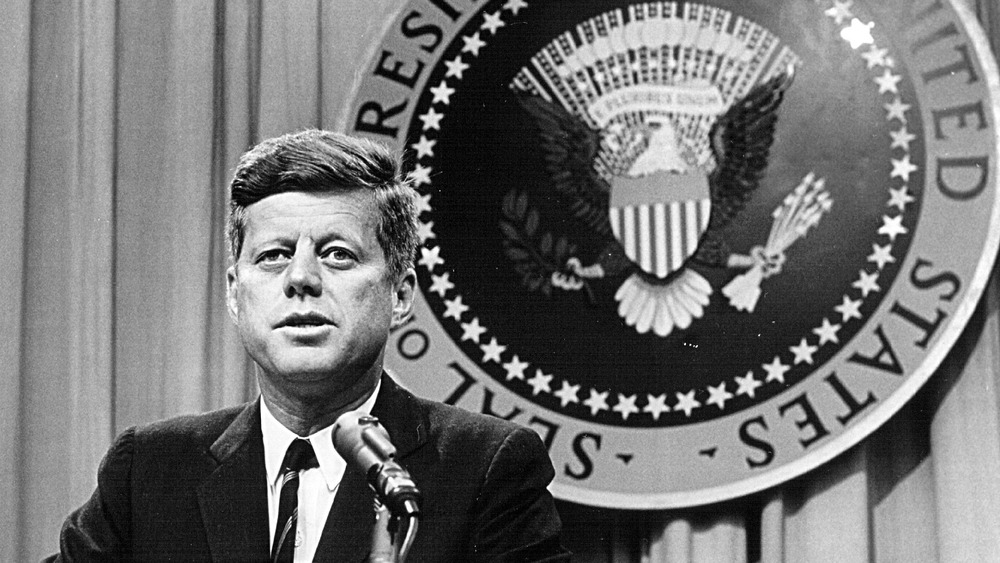Why John Kennedy Was A Decorated War Hero
The President of the United States is also the Commander-in-Chief of the military, and while it's not a requirement to serve before becoming president, some presidents have. Among them was the 35th President, John F. Kennedy. And JFK did not just enter the Navy; he's a bona fide war hero.
Despite a bad back, JFK joined the Navy through the help of the director of Naval Intelligence (ONI), whom his father knew while serving as ambassador to the United Kingdom. JFK was placed on staff at the ONI before training for the torpedo boat squadron, according to the Naval History and History Command. During his training, he was promoted to the rank of lieutenant, junior grade.
The young JFK, however, wanted to see combat. He transferred to the Motor Torpedo Boat Squadron TWO, based in the Solomon Islands, in the middle of the war with Japan. There, he took command of torpedo boat PT 109. On August 1, 1943, PT 109 and other ships were ordered to intercept Japanese warships. History explained the mission wasn't impossible, but the conditions were difficult. It was a dark night with barely any light from the moon and the stars.
As PT 109 slowly made its way towards the ships, getting ready to fire its torpedoes, the crewmen looked in horror as a Japanese destroyer rammed into them. JFK's crew didn't have enough engine power to do evasive maneuvers. The force of the collision slammed JFK into the cockpit, further damaging his back.
He saved one of his men
PT 109's damage was severe, per the JFK Library. It caught fire, and JFK ordered his men to abandon ship. Two of his men died; only 11 remained. Now all in the water, JFK saw that one of his men was injured. He swam towards engineer Patrick McMahon who was below decks when the Japanese ship struck and was badly burned. He strapped a life vest around McMahon.
Spotting that PT 109 started sinking, JFK decided to swim to nearby land. He towed McMahon, clasping a strap in his teeth, as the men began to swim towards an inlet about three-and-a-half miles away. It took about four hours for JFK and his men to reach the island. History said once JFK crawled ashore at Plum Pudding island, he vomited saltwater and collapsed in exhaustion. The island had neither food nor water, but they stayed the night. JFK took to the seas again the next day to look for another island or, hopefully, a way to signal other American naval vessels. He kept swimming but saw no other patrol boats. He got caught in a current but by morning managed to make his way back to the island.
On August 4, the men swam to another island, Naru, in hopes of finding food and water. JFK once again towed McMahon. They reached Naru and found several Natives there. JFK scratched out a message on a coconut husk for the men to deliver.
And was awarded the Purple Heart
Finally, the men were rescued by Lieutenant Arthur Reginald Evans on August 8. After returning to the United States, JFK was awarded the Navy and Marine Corps medals for his bravery in the face of danger to his men and hailed as a hero. Since he reinjured his back during the collision of PT 109, he was also awarded the Purple Heart.
JFK's story was picked up by news media and arguably started JFK down the path of politics. Three years later, he won the Congressional seat for Boston. History said during the campaign, his father played up facts about JFK, including his World War II service. JFK himself didn't make a big deal of it, saying that while he was shaped by war, many other men were as well. His actions during the war helped shaped the way he viewed leadership, said the JFK Library, and influenced how he approached issues during his presidency.
Of course, it didn't matter in the end that JFK was a war hero. JFK was riding in a motorcade on November 22, 1963, when he was shot and killed in Dallas. These days, people remember JFK as one of the more prominent victims of the so-called Kennedy curse, but few remember that he's an actual war hero, decorated for his service to his country.


